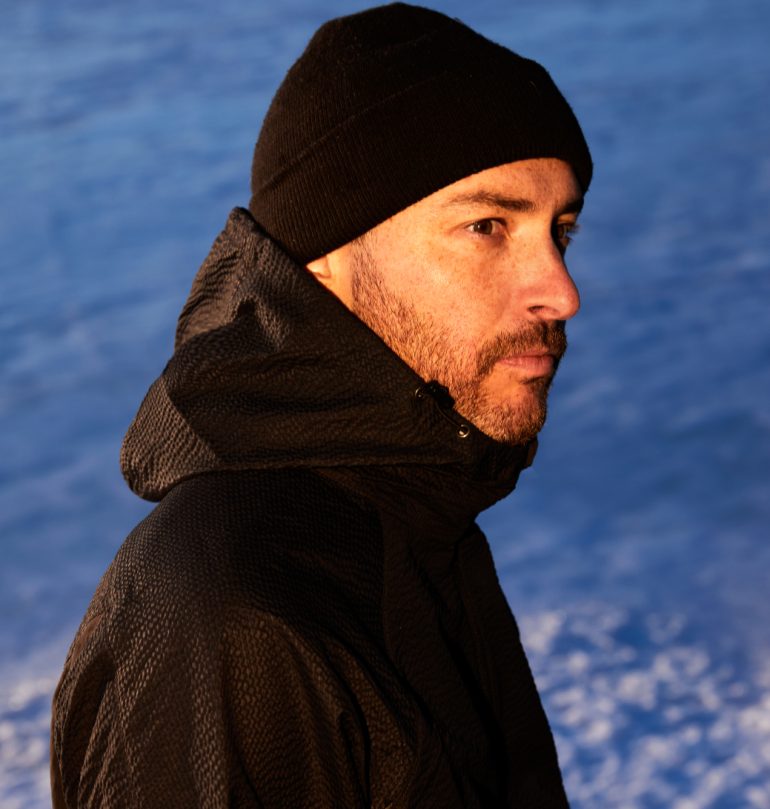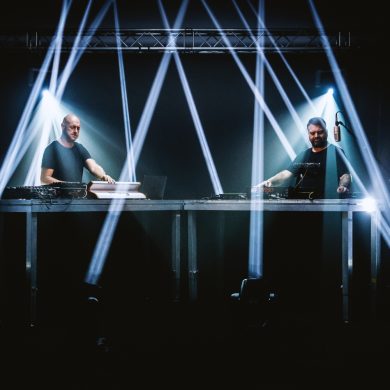We sat down with Errance, the solo project of Canadian producer, director, and composer Gabriel Gagnon. He recently released his beautifully resonant and earthy debut single, ‘Guidance’, on the first of March, 2024, through Société Holographique de Montréal. Co-produced with Hologramme, the organic house track is the first glimpse of Errance’s upcoming self-produced album, slated for release later this year. BBC Radio 6’s Tom Ravenscroft and Deb Grant have already shown early support for the track. Errance is beginning to carve out a place for his own musical expression in the wake of a process of deep introspection, self-growth and a profound connection to nature.
Listen to his debut single, ‘Guidance’, while you read our interview with him below:
What made you decide to pursue a musical career?
Music has always been a part of my life; I can’t really imagine what I would do without it. It all started at a young age, playing with my father’s Yamaha PSR-32. I began producing music professionally about 10 years ago, starting as a studio assistant and collaborating with various artists. Despite my deep love for music production, arranging compositions, and crafting sonic landscapes, it wasn’t until later in life that I carved out space for my own musical expression. Three years ago, I moved to the countryside next to Mount Orford National Park. The stillness, introspection, and meditation mixed with the time I had to contemplate nature during the pandemic inspired me to create this album. I see this switch as a gift, a new challenge on my path. I want to pursue this new challenge as far as I can and share my music with this new audience.”
What would you be doing as a career if you never pursued music?
Spending time outdoors in recent years has shown me that I feel most at ease and creative when I’m connected with nature. I could easily envision myself working as aaa i don’t know .. a gardener? Haha.
Describe what setting you would ideally have someone hear your debut single ‘Guidance’ for the first time.
I would say during a hike or a walk in the forest or by the sea, in an open space where you can contemplate the horizon.
What’s your “secret sauce?” What makes your sound stand out?
I consider myself more of a collector than a musician. I’m deeply passionate about field recording and unique textures. I spend countless hours wandering around the national park with my dog, Pépé, capturing all sorts of sounds that I later manipulate in the studio. It gives me that earthy, moist organic sound.
Define a successful day in your eyes.
Wake up early, meditate, then head to the studio bright and early. Try to open the creative tunnel and dive into the process of starting a new creation. Bring in people to bounce ideas off of and explore new avenues. Finish the day with friends and hang out.
Pros and cons of the industry from your perspective?
Pros – with music production now more accessible, it allows musicians to use it as a pure form of self-expression, a universal language.
Cons – however, with so many people pursuing their musical paths, the pool of artists becomes so vast that it becomes very difficult to make a living solely off our art.
What were some of the most influential albums on your creative outlook and output?
Music for Psychedelic Therapy – Jon Hopkins
Crooks and Lovers – Mount Kimbie
An Offering – Photay
Nachtsones – Supreems
What key pieces of gear/software do you use to define your sound?
For this album, I intentionally avoided relying on loops or samples. Instead, I experimented with analog gear such as vintage drum machines, a Juno synth, old spring reverbs, space echoes, vintage Moogs, electric pianos, and more. This hands-on approach allowed me to craft a sound that is truly authentic and reflects my artistic vision.
How do you prepare yourself mentally for performing or/and studio sessions?
Running a music house with Clément (Hologramme) means practically living at the studio, where we juggle various projects and productions every day. Getting into the creative zone requires the right setup: a clean room with all gear ready to go. During sessions, I clear my schedule and silence my phone, nothing should interrupt the flow.
How has music production changed your outlook on life?
I see music composition as a form of meditation. When the creative channel is open, you can truly reach a point of alignment and be connected with the present moment. It has allowed me to question myself, introspect, and figure out my sound and what I want to share with my audience.
Tell us about your upcoming releases or projects.
Three more singles, then onto the album. Perhaps a release show to set the stage. But beyond that, my focus is on building a new studio in the woods near the national park. I’m itching to create an EP inspired by the nocturnal wonders. Ambient sounds from the night intertwined with intricate rhythms and melodic textures, crafting a vibe that’s upbeat and utterly immersive.
Follow Errance:
Website – Facebook – Soundcloud – TikTok – Youtube – Instagram – Spotify


